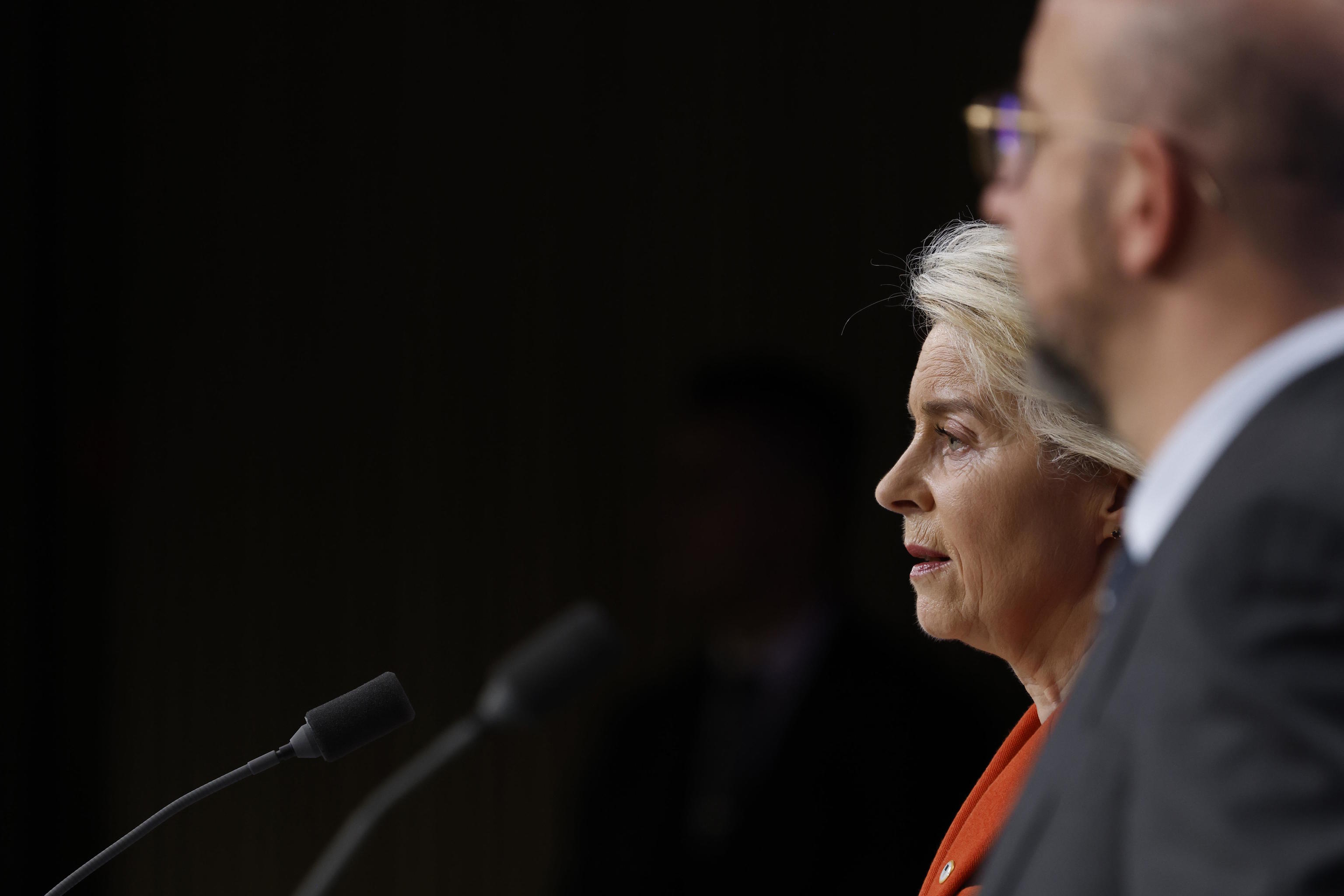The conclusions of the European Council have not been as direct and apparently not as fiercely negotiated as it seemed at times in Brussels in the days leading up to the meeting of presidents and prime ministers. However, the text agreed upon this Thursday by the 27 countries does not at all close the door to immigrant centers outside the European Union that the head of the European Commission, Ursula Von der Leyen, included among the "innovative solutions" she pointed out in the letter released on Monday.
Furthermore, Von der Leyen stated in the subsequent press conference that these hubs were part of the discussion held by the presidents, and the agreed document emphasizes that "new ways to prevent illegal immigration" will be sought. A euphemism to please all countries but which strongly resembles those "innovative solutions" that the President of the Commission mentioned in the aforementioned letter after, back in May, a total of 15 countries precisely requested that.
Despite the fact that the Prime Minister, Pedro Sánchez, denied after the conclusion of the Council that has now closed and stated that the centers "do not address the problems and create new ones," the shift to the right and the approach to measures and solutions advocated by the most extremist and radical parties is evident. Not only that, as social democratic governments like the Danish one also clearly advocate for more control. Only Spain and Ireland clearly opt for other alternatives.
Italian sources explained that Von der Leyen detailed the main lines of the already well-known "innovative solutions." And Giorgia Meloni, on her part, presented the Italy-Albania agreement that the President of the Commission wants to take as an example for possible immigrant hubs. The President emerges strengthened from the Council, as she is increasingly managing to attract more countries to her policies, and according to sources from the organizing countries, the parallel summit will be repeated in future meetings.
"Our shared goal is to have migration under control and accelerate the return of rejected asylum seekers. That is why we have discussed innovative solutions to facilitate returns and also the need for stricter European legislation," explained the Prime Minister of the Netherlands, Dick Schoof, in a statement at the end of the meeting.
And all this, despite the data showing that illegal entries have decreased by 40% in the first nine months of the year. But that seems to be irrelevant. The reality is that more and more countries want to control immigration more strictly and expel illegal immigrants more effectively.
The relevance of this Thursday's meeting is also highlighted by the fact that the leaders of the two main opposition parties in Spain, Popular Party and Vox, were also in Brussels. The top popular leader, Alberto Núñez Feijóo, pointed out that President Sánchez "is increasingly isolated" in the migration debate. That is indeed the feeling in the EU capital despite the fact that, as mentioned, the head of the Spanish government says otherwise. The PP leader, however, avoided taking a clear stance for or against "innovative solutions."
Abascal, who met with Meloni on Wednesday, also did not want to fully support the centers. It is not that he rejects them, as clarified by Vox, but he did advocate for "sending the message that those who arrive in Spain and Europe illegally will never be regularized." "We must prevent them from coming," he added, thus showing a certain distance from the group led by the Italian president and also from what Von der Leyen outlined in the letter that triggered everything.
In addition to immigration, the war in Ukraine and the escalation of tension in the Middle East have been other topics discussed. Regarding the situation in Ukraine, the presidents have heard what President Zelenski has dubbed as the victory plan, which includes the use of long-range weapons, as well as its integration into NATO once the war is over. European leaders have offered their support to Ukraine, although without directly endorsing the plan, and Von der Leyen added that the country has made "significant progress" on its path to EU accession.
They have also criticized the actions of third countries in the conflict, which directly connects with the warning issued by Zelenski: Ukrainian intelligence services have detected the presence of 10,000 North Korean soldiers in the Donbas region ready to attack Ukraine. "It is the first step towards a world war," stated the Ukrainian President.
Regarding the Middle East, the document strongly condemns the attacks being carried out by all parties. Spanish community sources indicate that there is a growing certainty among the 27 that it is necessary to contain the actions of the country led by Benjamin Netanyahu, although other sources point out that countries as relevant as Germany are much more cautious.
